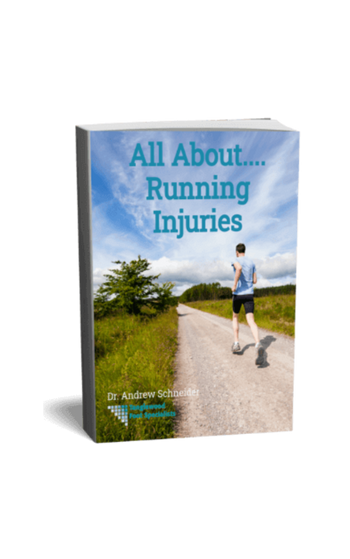 The call of the road is real to a runner, but there is such a thing as too much training. As we all know, over-training can lead to burnout and injury. Ultimately, it can set you back much farther than any boost in fitness you may have enjoyed from pushing yourself those extra miles.
The call of the road is real to a runner, but there is such a thing as too much training. As we all know, over-training can lead to burnout and injury. Ultimately, it can set you back much farther than any boost in fitness you may have enjoyed from pushing yourself those extra miles.
Conversely, when you take a rest from running, you can gain measurable benefits, both for your body and for your mind. Avoiding overtraining can help your body physically heal. And it can help you recommit to your sport without feeling overwhelmed or burdened.
But, aside from actually sustaining an injury, how do you know when you need to stop running for a bit and give yourself a break? Here's what you need to know.
Taking a Rest From Running
There are certain times when, no matter how your body is feeling, it's important to stop running for a while to give your body a break. One of those times is after running a race--especially a marathon. The school of thought there is to take one day of post-race rest for every mile you ran. At other times, the reasons for resting may be more situation. Many runners take a break during the holidays, since busy schedules can make it extra stressful to try and fit training into your day (or night.)
At other times, the need to take a rest from running will become clear. You may roll your ankle and see it swell. Or hear a popping noise as you race up or down a hill. Clearly, these signs are pretty easy to detect. But, at other times, your body will send you subtler warnings that its reaching a breaking point. And it's crucial that you learn to detect them if you want to avoid overtraining, and an injury.
But what are these signs? There are many, but, today, we want to highlight five of them, shared by educational consultant and runner Jason Saltmarsh in The Huffington Post. If you’re experiencing any one of these warning signs, they should indicate that it’s time for a break. As such, you should build in a few rest days to your regimen and schedule an appointment with our Houston running doctor to rule out any injury that may already be present.
5 Signs You Need a Rest From Running
On their own, any one of these signs should make you take a closer look at your training routine, considering a pause to avoid injury. But, in combination, they should send you into our office for an immediate consultation.
Increased Resting Heart Rate
Check your heart rate when you wake up. An increase over time could mean you’re overtraining.
General Fatigue
If you feel like just getting through the day is a challenge, you may be doing too much. This could be a sign that it's time to take a rest from running, before you develop burnout.
Trouble Sleeping
Too much training can disrupt your circadian rhythm and make sleeping through the night impossible. So, if you're waking up in the middle of the night and not sure why, try taking a break from your training schedule and see if it makes a difference in your nights.
Moodiness
Is your temper on high? Do you feel down about your running? This could be a sign that you're overdoing it at the gym or on the track. Try backing off a bit so that you can feel that runner’s high again.
Lingering Muscle Soreness
A little bit of that ‘good’ soreness is ok after a long run. It's a sign that you're forming new muscles and gaining strength. However, if the pain lingers for more than a day or two; is only detectable in one spot; or if it gets worse over time, you may be on your way to a running injury. Take a break from running to stay healthy and avoid overtraining.
Avoiding Overtraining is the Key to Healthy Living
Overuse injuries are far too common in our Houston podiatry practice. While we can always help you overcome the pain and inflammation of this injury However, we'd rather see you avoid injury altogether. So let this post be a reminder to you: sometimes it's ok to take a rest from running. In fact, it could be the key to avoiding overtraining and preventing an injury from developing.
Already in pain? Think you may have developed an injury? Stop all exercise and contact us for an appointment. When you come into the office, we can heal your existing injury and help you craft a training program that will keep you from coming back to the office in pain once you're cleared to start training again.















